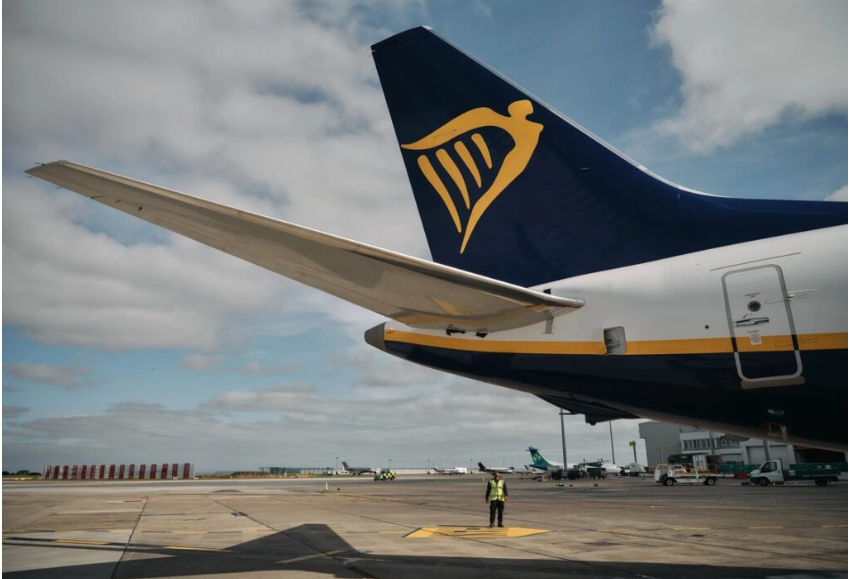
Major low-cost carrier Ryanair has announced a significant expansion of its Copenhagen operations for Winter 2024. Simultaneously, the airline has raised concerns about proposed government taxation that it claims could impact future growth.
The airline’s latest schedule introduces four new exciting destinations. These will connect Danish travelers to Barcelona, Bristol, Poznań, and Sofia. This brings its total Copenhagen routes to 29 and reinforces its commitment to the Danish market. The new routes will connect Copenhagen to the vibrant Spanish city of Barcelona, the cultural hub of Bristol in the UK, the historic Polish city of Poznań, and the Bulgarian capital of Sofia.
These additions offer Danish travelers and visitors a diverse range of experiences. This ranges from Barcelona’s iconic Las Ramblas and Gothic Quarter to Bristol’s maritime heritage and thriving arts scene. Travelers can also explore Poznań’s stunning Renaissance architecture and peaceful Malta Lake, or discover Sofia’s unique blend of Roman, Byzantine, and Ottoman influences.

However, this expansion comes at a crucial time for Danish aviation. The country’s air traffic recovery continues to lag behind other European nations, reaching only 95% of pre-Covid levels. This slower recovery rate has raised concerns among industry stakeholders Presently, the Danish government is considering implementing a new aviation tax of DKK 50 per departing passenger, starting January 2025.
Ryanair has strongly contested this proposed tax, which is being presented as an environmental measure. The airline argues that similar taxes in other countries have proven ineffective at promoting sustainable aviation.
It contends that this has significantly hampered economic growth, tourism development, and job creation. Ryanair points to Sweden as a compelling case study, where the government’s decision to abolish aviation taxes has yielded positive results.

Following Sweden’s tax removal, Ryanair responded with substantial investment, including two additional aircraft valued at $200 million, the introduction of 10 new routes, and the creation of 60 new jobs for their Summer 2025 schedule. The airline suggests this example demonstrates how airline-friendly policies can stimulate economic growth and improve connectivity.
The situation draws parallels with other European markets, particularly Germany, where high operational costs and similar taxation policies have impacted aviation recovery. Ryanair’s post-Covid growth in Denmark, which has reached 35%, demonstrates the potential for further expansion if supportive policies are implemented.
Dara Brady, Ryanair’s spokesperson gave comment on the situation. Despite our significant investment in Denmark, including four new Copenhagen routes, the country faces challenges in recovering its pre-Covid traffic levels due to high access costs and airport charges.
The proposed aviation tax would further diminish Denmark’s competitiveness compared to other EU states that are actively working to reduce air travel costs. Ryanair emphasizes that cost considerations play a crucial role in their decision-making process for network expansion and aircraft allocation. The airline maintains that introducing additional taxes would counteract efforts to stimulate traffic growth and provide meaningful competition to established carriers like SAS.
The airline is calling on the Danish government to reconsider its approach and follow Sweden’s example by focusing on policies that promote growth and competition in the aviation sector. This, they argue, would not only help Denmark achieve full recovery of its pre-Covid traffic levels but also secure long-term benefits for the country’s tourism industry and broader economy.


